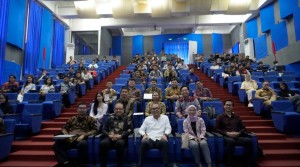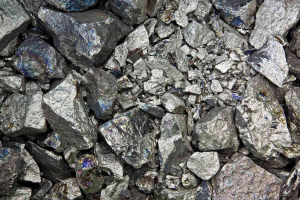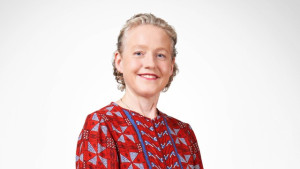Indonesia eyes US$38 billion CCS investment in Java Sea
The Indonesia Carbon Capture and Storage Center (ICCSC) reveals of a planned US$38 billion (Rp640.79 trillion) investment for the development of Carbon Capture and Storage (CCS) facilities in the Java Sea region currently under evaluation by from various companies, from multinational companies and also national oil companies
"(The investment) is from various companies − multinational and national companies. One of them is ExxonMobil," ICCSC Executive Director, Belladona Troxylon Maulianda, said on Monday, April 21, 2025.
She cited that Indonesia has the potential for CO2 storage that can reach 200 years. The storage potential is not only to accommodate domestic emissions, but also from neighboring countries.
The supply chain of the CCS hub is projected to be able to create up to 170,000 jobs annually and increase gross domestic product (GDP) by 0.8 person to 1 percent, making CCS a significant economic opportunity amidst global climate challenges.
"Later (CCS) will create infrastructure, which creates jobs or requires experts. There could be around 170,000 jobs per year, starting from the construction sector, engineering to supervision, which we will call MRV (Monitoring, Reporting and Verification)," Belladona said.
She said further that CCS is a technology that requires large investment and therefore suggesting that collaboration between the public and private sectors is key.
"We learn from other leading countries, such as Norway and the U.S. This project requires collaboration between public and private partnerships and of course the government, in order to be able to find solutions,” she noted.
She added that the cooperation between Pertamina and Exxon as a concrete example of strategic collaboration in creating a CCS hub that has the potential to become a reference in the region.
Indonesia has a strategic advantage because it is rich in downstream industries such as petrochemicals, steel and cement. These sectors are difficult to decarbonize even though they have implemented electrification or renewable energy.
"Even though they electrify, replace cars with electric cars, or replace fuel with biofuel and so on, they still produce quite high emissions. Therefore, they have to do other decarbonization and in terms of volume, based on technology and science, CCS is the largest that can reduce its volume," Belladona said.
She added that the current global trend demands products with a low carbon footprint, such as green products or blue products, while citing the European Union (EU) will implement the Carbon Border Adjustment Mechanism (CBAM) in 2026, which requires all imported products to have low emissions.
"So all goods imported into the European Union must be low carbon products. Otherwise they will impose taxes or the products cannot be imported into the EU at all. So that is the opportunity," she said.
Opportunities also arise from the fertilizer sector. According to her, Indonesia has great potential to produce blue ammonia, whose emissions have been captured and stored through CCS. This product is in demand by foreign markets for use in low-emission power plants.
"(Blue ammonia) is for power plants that will produce cleaner emissions. We are actually co-firing power plants, and there are already several overseas power plants, such as Japan, that want to buy blue ammonia," Belladona said.
Already have an account? Sign In
-
Start reading
Freemium
-
Monthly Subscription
20% OFF$29.75
$37.19/MonthCancel anytime
This offer is open to all new subscribers!
Subscribe now -
Yearly Subscription
33% OFF$228.13
$340.5/YearCancel anytime
This offer is open to all new subscribers!
Subscribe now







